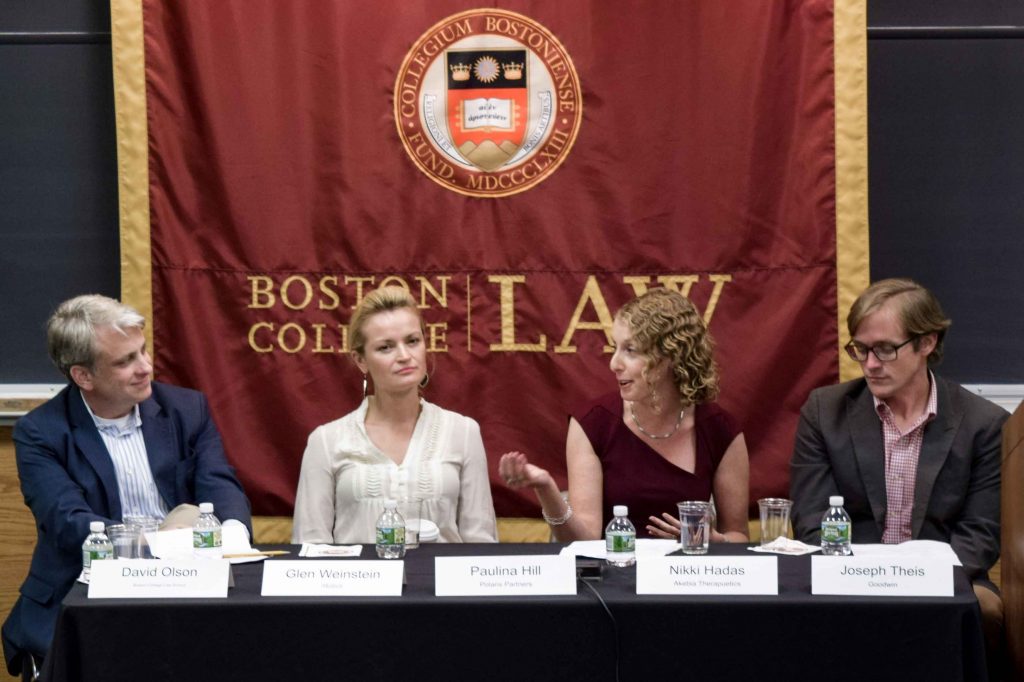BC Law’s Program on Innovation and Entrepreneurship (PIE) hosted its launch event on October 5, a panel discussion about the role of law and lawyers in an innovation economy.
In opening remarks, Dean Vincent Rougeau described the role PIE will play at BC Law and in the community. The idea is to build partnerships between the Law School and entrepreneurs working in intellectual property, health care, biotechnology, and other growing areas in the region’s economy. “It is particularly fitting,” he said, “that BC Law should embrace as part of its mission [of service] a deep engagement with these important areas and with the novel legal issues they raise.”
Professor David Olson, faculty director of PIE, moderated the conversation that featured Akebia Therapeutics’ Nikki Hadas, ’97, Goodwin’s Joseph Theis, ’03, Polaris Partners’ Paulina Hill, and iRobot’s Glen Weinstein. “This event is a great way for the BC Law community to hear four top experts in the fields of biotechnology, high-tech robotics, venture capital, and related legal services discuss the state of innovation and entrepreneurship in Greater Boston right now,” he said.
Panelist Hadas, senior vice president and general counsel at Akebia, said successful companies foster innovation by “hiring managers that people feel comfortable approaching and ensuring that employees have the time and capacity to be creative.” Business-savvy lawyers play a collaborative role, she said, “by being more aware of risks so they can perform due diligence and ensure management makes the right decisions.”
Theis agreed. He stressed the importance of mission and culture within companies and then explained how lawyers are helping remove red tape for entrepreneurs. “We provide programs like Founder’s Workbench to provide legal documents for free,” Theis said. “This means it’s never been easier or more cost effective to start a company. The only start-up aspect that costs more than it did in 2006 is coffee.”
Weinstein, iRobot’s chief legal officer, cheered his company’s personnel practices: “We hire builders…the kind of people who don’t go out and buy a new one when their toaster breaks. That fosters a sense of innovation.” He said that this requires lawyers who can think past case law and “understand business and financials from the ground up.”
Hill, a principal at Polaris, focused on Boston’s burgeoning biotechnology and medical industries and applauded the innovation that begins at the region’s universities and hospitals. Lawyers play a vital role in determining which developments can grow into successful companies, she said. “Having lawyers around the table to brainstorm business strategy makes things so much smoother.”
“Beginning today, PIE, in partnership with collaborators in the innovation and entrepreneurship space, will host speakers, discussions, conferences, and symposia at BC Law, in and around Greater Boston, and in cities across the country,” Rougeau said. “PIE will also support academic research and student work related to innovation and entrepreneurship; rich discussions, cutting-edge research, and intellectual exchange will be hallmarks of this new and exciting program.”
Photo, from left: Glen Weinstein, Paulina Hill, Nikki Hadas ’97, and Joseph Theis ’03



